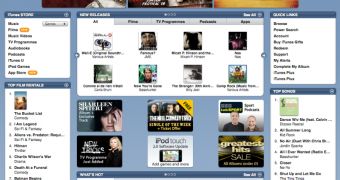iTunes fans, and especially those living in the UK, might remember that Apple once promised to lower the prices it charged for music on its UK iTunes Store, within six months, to match the already standardized pricing on iTunes across Europe. With reports flying in saying that 99 Euro cents now equals 79p (close to the 74p Apple had in mind for the price drop), the iPod maker reckons no price cuts are necessary anymore.
"This is an important step towards a pan-European marketplace for music," said Apple CEO Steve Jobs at the time Apple was announcing its plans to slash song prices for iTunes UK. "We hope every major record label will take a pan-European view of pricing."
In Austria, Belgium, Denmark, Germany, Finland, France, Greece, Ireland, Italy, Luxembourg, Netherlands, Norway, Portugal, Sweden, Switzerland and Spain, songs purchased on iTunes cost 99 Euro cents, which is about 74p in the UK. BBC reports now say that exchange rate changes since January currently mean 99 Euro cents equals 79p. This, in turn, means no price cut is in order anymore, or so says an Apple spokesman quoted in a BBC report: "The announcement was that we would match the UK price to that of other lower priced European countries," the Apple spokesman said. "This is no longer necessary as exchange rates have effectively done it for us."
The same spokesman said that Apple wants to keep the pan-European prices "standardized," but "was unable to confirm what would happen when the exchange rate changed again, or whether British fans could end up paying more than 79p," the BBC report reads.
If we were to take a guess, Apple would have to be in a really good mood to immediately slash the price on song downloads for UK iTunes customers, should Euro drop in value. Adding that currency value is never very constant, Apple would practically take quite a chance proceeding to a price cut. Look at it this way: had Apple cut the price on iTunes music downloads in January, what would a song sell for now on the UK iTunes?

 14 DAY TRIAL //
14 DAY TRIAL //